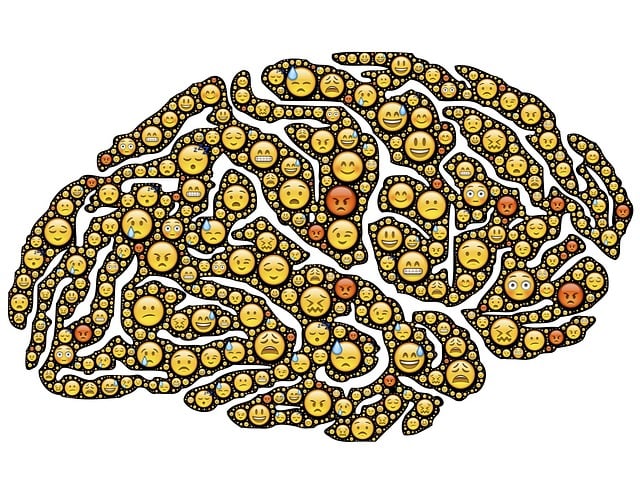Mental health professionals at Lone Tree Eating Disorders Therapy face unique risks such as boundary crossings and burnout. To mitigate these challenges, they employ strategies like Coping Skills Development, Mental Wellness Coaching, and Community Outreach, fostering self-care and support networks. Regular risk assessments, open communication, and stress reduction techniques are key to recognizing early warning signs and managing client safety. A comprehensive approach includes emotional regulation, trauma-informed care, and crisis intervention protocols. Continuous evaluation, goal setting, and feedback integration ensure the therapy remains effective and aligned with best practices, ultimately enhancing client outcomes and community well-being.
Mental health professionals face unique risks that demand meticulous risk management planning. This article explores critical aspects, from understanding the specific dangers of mental health practice to developing robust strategies for client safety and well-being. We delve into creating comprehensive risk management plans, implementing crisis intervention protocols, and continually evaluating best practices, especially relevant in treating conditions like Lone Tree Eating Disorders Therapy.
- Understanding the Unique Risks of Mental Health Practice
- Identifying Potential Threats to Client Safety and Well-being
- Developing a Comprehensive Risk Management Strategy
- Implementing Protocols for Crisis Intervention and Prevention
- Continuous Evaluation and Improvement in Lone Tree Eating Disorders Therapy
Understanding the Unique Risks of Mental Health Practice

Mental health professionals face unique challenges that demand a nuanced approach to risk management. Unlike other therapeutic settings, the nature of their work often involves highly sensitive and personal information shared by clients grappling with complex issues like eating disorders, anxiety, depression, or trauma. This inherent vulnerability requires professionals to be vigilant against potential risks such as boundary crossings, confidentiality breaches, and even self-care challenges stemming from empathizing too deeply with clients’ struggles.
For instance, therapists specializing in Lone Tree Eating Disorders Therapy must be attuned to the risk of burnout due to the intensity and emotional demands of their work. Coping Skills Development and Mental Wellness Coaching Programs Development can play a vital role in mitigating these risks by equipping professionals with effective strategies for stress management, self-care, and maintaining professional boundaries. Additionally, Community Outreach Program Implementation can foster a supportive network, offering opportunities for peer support and collaborative problem-solving among mental health practitioners.
Identifying Potential Threats to Client Safety and Well-being

Mental health professionals, especially those focusing on disorders like those treated at Lone Tree Eating Disorders Therapy, must remain vigilant in identifying potential threats to client safety and well-being. These threats can manifest in various forms, from unexpected behavioral shifts that may indicate escalating symptoms, to potential self-harm or harm towards others. Regular risk assessments are crucial here, as they help professionals anticipate and mitigate these risks proactively. By fostering an environment of open communication with clients, integrating community outreach program implementation, and promoting inner strength development through therapeutic practices, mental health practitioners can enhance their ability to recognize early warning signs.
Stress reduction methods also play a significant role in this context, as chronic stress can exacerbate existing conditions and increase the risk of adverse outcomes. By incorporating these techniques into treatment plans, professionals not only support clients’ immediate needs but also equip them with tools for long-term resilience. This multifaceted approach ensures that clients receive comprehensive care tailored to their unique needs, thereby enhancing the overall effectiveness of risk management planning.
Developing a Comprehensive Risk Management Strategy

Mental health professionals must adopt a proactive approach to risk management, creating a robust strategy that encompasses all potential hazards and vulnerabilities within their practice. This involves a multifaceted approach, tailored to address the unique challenges faced by therapists, especially those specializing in eating disorders like Lone Tree Eating Disorders Therapy.
A comprehensive plan should prioritize emotional regulation and inner strength development for both the therapist and clients. By fostering emotional intelligence, professionals can enhance their ability to recognize and mitigate risks effectively. This includes implementing safety protocols, integrating trauma-informed care practices, and encouraging open communication to foster a safe and supportive therapeutic environment.
Implementing Protocols for Crisis Intervention and Prevention

In the realm of mental health care, particularly for professionals like those at Lone Tree Eating Disorders Therapy, crisis intervention and prevention protocols are non-negotiable. These strategies are designed to equip therapists with the tools to anticipate and effectively manage acute situations that may arise during therapy sessions. By implementing structured protocols, professionals can create a safe and supportive environment, fostering positive thinking and emotional regulation among clients. This proactive approach not only enhances the overall therapeutic experience but also enables better mood management for individuals struggling with various mental health challenges.
The protocols should encompass a range of strategies, from early identification of warning signs to de-escalation techniques and crisis referral procedures. Regular training and updates on these protocols are essential to ensure therapists remain adept at handling crises. This continuous learning not only benefits the professionals’ practice but also guarantees clients receive timely and appropriate support, contributing to their long-term emotional well-being.
Continuous Evaluation and Improvement in Lone Tree Eating Disorders Therapy

In the dynamic field of Lone Tree Eating Disorders Therapy, continuous evaluation and improvement are not just desirable but essential practices. Regular assessment allows mental health professionals to adapt their approaches based on client progress, cultural shifts, and emerging research in eating disorder treatment. Incorporating a culture of quality assurance involves setting measurable goals, gathering feedback from clients and peers, and systematically reviewing therapy outcomes. This iterative process ensures that the Lone Tree Eating Disorders Therapy remains effective, accessible, and aligned with best practices in mental health education programs design.
By prioritizing continuous evaluation, therapists can identify areas for enhancement in mood management strategies and depression prevention techniques. This proactive approach benefits both clients and the broader community by fostering more successful recovery journeys. It encourages a flexible and responsive environment where therapy evolves to meet the diverse needs of individuals seeking support for their eating disorders.
Mental health professionals, especially those specializing in conditions like eating disorders in Lone Tree, face unique challenges. By understanding and proactively managing these risks through comprehensive strategies, crisis interventions, and continuous improvement, practitioners can ensure client safety and deliver effective care. Implementing robust risk management planning is not just a best practice—it’s an essential safeguard for both professionals and their clients.














